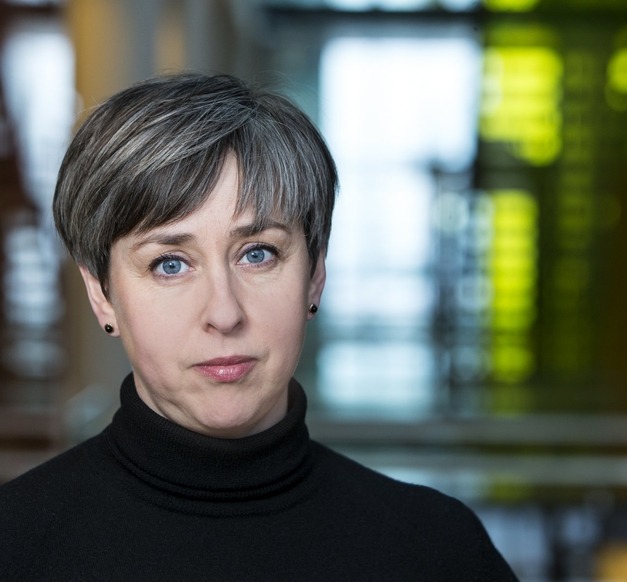
Eygló Rúnarsdóttir, adjunct lecturer at the School of Education
Teenagers from homes with poor financial standing are more likely to become victims of sexual violence. This is the result of a study conducted by Eygló Rúnarsdóttir and Ársæll Arnarsson on the impact of financial standing and gender on the likelihood of teenagers becoming victims of sexual violence.
Ársæll is a professor at the University of Iceland's School of Education, and Eygló is an adjunct lecturer at the same school and the study is based on a database from a survey on the health and well-being of 85% teenagers in 2014.
Eygló has worked with young people for years and became interested in the group of teenagers who for some reason or other are in a weak position in society. "I wanted to examine how the Icelandic community both receives and supports young people and how their culture evolves and progresses in present time," she says.
The database includes extensive information that can be used to shed light on various factors in the lives of school children. The teenagers were asked to evaluate the financial standing of their family in the questionnaire by comparing themselves to their peers. "Research on variables such as these have shown that the way kids experience themselves in comparison with others has significant value," says Eygló.
Eygló and Ársæll have studied the connection between financial standing and the teenagers' answers on whether they have be subject to sexual violence. Of the 3,618 students who completed the questionnaire, 14.6% said they had experiences sexual harassment or violence. Furthermore, the results show that the odds of being subject to sexual violence or harassment increase among teenagers from homes with poor financial standing. Among girls who considered their family to be in financial difficulties, 37.6% had been subject to harassment or violence. They are twice more likely to become victims of sexual violence than boys in the same situation. A total of 29.9 percent of teenagers, who considered their family's financial standing to be poor, were victims of sexual violence or harassment of some sort.
"Research generally show that kids who live in poor economic situations are more at risk in many fields," she says, but adds that it is also important to remember the 13 percent who considered their financial situation to be good but had been victims of sexual violence. "We must not over simplify the discussion by saying that violence and harassment against children is only found among the poorer population," she says.

Eygló said the results were not surprising. "Research generally show that kids who live in poor economic situations are more at risk in many fields," she says, but adds that it is also important to remember the 13 percent who considered their financial situation to be good but had been victims of sexual violence. "We must not over simplify the discussion by saying that violence and harassment against children is only found among the poorer population," she says.
Eygló says that people's circumstances are unequal in Iceland as everywhere else. "People believe that everyone can lead a good life in Iceland but those of us who are interested in examining the community of children and adolescents know that not everyone has a seat at the table," she says. This knowledge can thus be used to take appropriate action.
"I hope that this knowledge can be used by the parties working in the field with children and adolescents and how we approach them and support their families to create a safe environment for the children and adolescents who poorer economic welfare than their peers," says Eygló.
"We can do so much in Iceland as there are so few of us, and we are well equipped to take good care of our children, whereever they may be," she says. The living condition of children is no private matter as studies have shown that traumas in childhood can have severe impact in adulthood. "These are the results in my opinion, if people are subject to violence in their childhood they may struggle with health issues or difficulties later in life. Then it becomes society's problem, but not that of one little family," concludes Eygló Rúnarsdóttir.
Author of the article: Eva Björk Benediktsdóttir, Master's student in Journalism and Mass Communication
Translation: Bryndís Jóhannsdóttir, editor at the Division of Marketing and Public Relations


